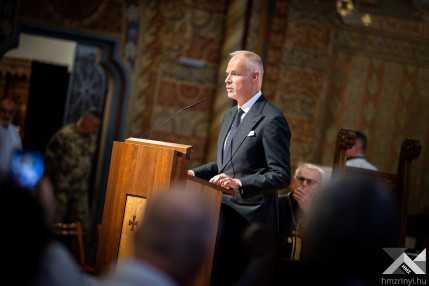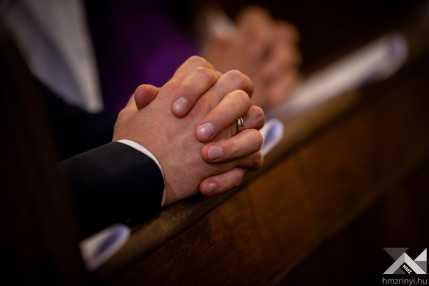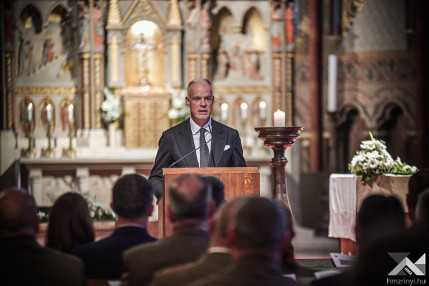“Ready and able to do everything for the country”
Text: defence.hu/MTI | Photo: Tünde Rácz, Gábor Kormány | 15:15 September 4, 2024“We must always solve the insoluble situations, and, at the same time, we must always be ready to defend the homeland” – said Defence Minister Kristóf Szalay-Bobrovniczky in Matthias Church, Budapest, at a Thanksgiving Holy Mass celebrated to mark the 338th anniversary of the liberation of Buda.

Kristóf Szalay-Bobrovniczky emphasized that the recapture of Buda was one of the life-changing moments in Hungarian history, which “raised our country from an apparently dead state lasting for 150 years at the cost of huge sacrifices.”
“This is a big and glorious moment that remains memorable for the Christian nations of Europe and also for the Hungarians freed from a foreign yoke” – he said.
He recalled that wars had been waged even during armistices in the “country broken into three parts” that had “a really frozen conflict on the borderland of two global empires, which poisoned the life of many generations through constantly recurring fighting.”
As he said, after 2 September 1686, although there followed a long fight, the area of the Ottoman occupation continued to shrink. The minister noted that the recapture of the capital of the nation is at once the refoundation of Buda and the birthday of Hungary returning to Europe. He added that we paid a huge price for all this, as it took a toll of tens of thousands of lives, and resulted in looted villages burnt to the ground and the power of making decisions about Hungarians being taken away from Hungary for subsequent centuries.

Kristóf Szalay-Bobrovniczky pointed out that “the liberation of Buda Castle was the last grand enterprise of Christian Europe and the last Crusade. It was at once part of a game of the great powers, with each state pursuing its own interests in its complicated and interconnected labyrinths, and also a great collective cause, in which Christianity was able, after 150 years, to regain what had been its own.”
He was of the opinion that Mohács and Buda are the two cornerstones in the history of the Ottoman era, and we must take both into account. He added that when we pay our tribute to the heroes and victims of the past, we also commit ourselves to the future.
The minister said that we must never again allow Hungary to end up in the captivity of harmful imperial interests and godless and inhumane ideologies that question its Christian culture and European form of life, take away its personal and communal freedoms and regularly plunder it as well. He added that Hungary and the Central European nations must enter into their own alliances “so that they never again be subject to the whims of empires.”

The minister of defence also said that the recapture of Buda shows well the meaning of frozen conflicts in a historical perspective. He noted that this country lost 300 years: 150 years because of the Ottoman occupation and another 150 years or so until it was able to plant and keep its flag again on Buda Castle.
Kristóf Szalay-Bobrovniczky drew attention to the fact that peace is the only solution in international life, so “live and frozen conflicts must be resolved”.
He emphasized that we must always solve the insoluble situations, and at the same time, we must always be ready to defend the homeland. What we need are well-trained and well-equipped armed forces that meet all the standards of our age and are composed of reservists and regulars who are ready and able to do everything for the country.